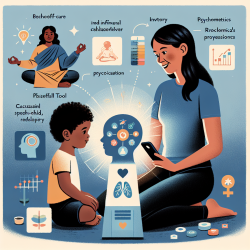Introduction
In the realm of child psychology and behavioral assessment, the importance of culturally adapted tools cannot be overstated. The recent study titled "Cross-Cultural Aspect of Behavior Assessment System for Children-2, Parent Rating Scale-Child: Standardization in Korean Children" sheds light on this critical aspect. This research highlights the psychometric properties and cross-cultural utility of the Behavior Assessment System for Children-2, Parent Rating Scale-Child (BASC-2 PRS-C) in Korean children, offering valuable insights for practitioners in the field.
Key Findings
The study involved a large sample size of Korean children from both general and clinical populations. It found that the Korean version of BASC-2 PRS-C (K-BASC-2 PRS-C) is a reliable and valid tool for assessing developmental psychopathology. However, it also noted some differences in mean scores between Korean and US populations, emphasizing the need for cultural adaptation in assessment tools.
Implications for Practitioners
For practitioners, these findings underscore the importance of using culturally adapted tools when assessing children from diverse backgrounds. Here are some practical steps you can take:
- Understand Cultural Differences: Recognize that cultural perceptions can influence parental reporting of children's behaviors. This awareness can enhance your interpretation of assessment results.
- Use Culturally Adapted Tools: Whenever possible, use tools that have been standardized and validated for the specific cultural group you are working with.
- Encourage Further Research: Support and participate in studies that aim to adapt and validate assessment tools for different cultural contexts.
Why This Matters
The study highlights that differences in parental reporting can lead to variations in service-seeking behaviors. For instance, only 10% of Korean children with ADHD receive treatment compared to 59% in the US. Understanding these cultural nuances can help practitioners provide better-targeted interventions and support.
Conclusion
The K-BASC-2 PRS-C is a valuable tool for assessing Korean children, but its findings also emphasize the broader need for culturally adapted assessment instruments. As practitioners, staying informed and advocating for culturally sensitive tools can lead to more accurate assessments and better outcomes for children.
To read the original research paper, please follow this link: Cross-Cultural Aspect of Behavior Assessment System for Children-2, Parent Rating Scale-Child: Standardization in Korean Children.










